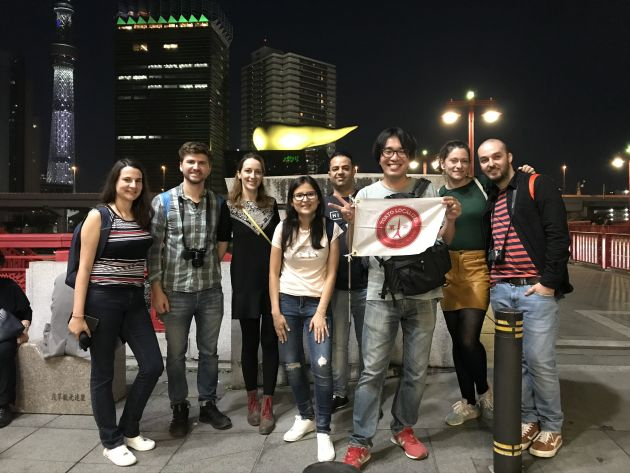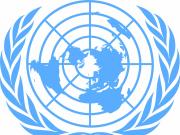As the world is grinding to a halt over the coronavirus disease (Covid-19) pandemic, small businesses in the tourism sector are hit the hardest, facing a colossal stress test for the first time. For businesses in the Asia-Pacific, the impact of the outbreak is strongly felt.
Japan, Indonesia, and the Philippines reported thousands of cases apiece, prompting indefinite travel bans and lockdowns in hopes of containing and reducing the number of Covid-19 cases. This has put a significant strain on the global economy and the region's bankable tourism sector.
The International Air Transport Association (IATA) has estimated that airlines in the Asia-Pacific will see the biggest passenger revenue drop of $113 billion this year compared to last year. They also expect passenger demand to fall by 50 percent this year compared to last year. IATA Asia-Pacific regional vice president Conrad Clifford identified Japan, India, Indonesia, Republic of Korea, Sri Lanka, Thailand, Malaysia, and the Philippines as priority countries that need to take action.
Travel technology company RateGain reported that COVID-19 has wiped out about 20% of the hotel business in the region, which is hardly sustainable for small hotels and boutique hotels. In the last eight weeks, hotel bookings in countries like India, Indonesia, Japan, Malaysia, Sri Lanka, Singapore, the Philippines, Thailand, and Vietnam have all seen a decline in reservations.
Harrowing Impact

For small business owners, the harrowing impact of this decline in air travel and hotel bookings is inescapable. Dai Miyamoto, the owner of a Japan-based free walking tour company Japan Localized, said the lockdown has completely immobilized their livelihood and affected more people to a ruthless extent. "Under the state of emergency, we cannot run our daily tours. Most of our tour guides are freelancers, and some of them became jobless," Miyamoto told IBTimes SG.
But Miyamoto's situation is not unique. Marziya Beba Begam, head of marketing and PR at La Joya Resorts in Bali, Indonesia, whose company employs 120 people, told this publication that they had to close operations early March for the safety of their employees and the people in the village.
"We didn't want our staff to be going through this challenging time losing sleep over thinking about how they are going to feed themselves and their families," said Begam, adding that it might take up to 12 months for the hotel business to function back to normal.
Begam said the resort owners had earmarked extra investment from their own pockets to secure their staff's minimum wage and other operating expenses for the next few months, but uncertainties worry them and what will happen after four months of no business activities. "This means we need to think about something sustainable for the next year to keep our people and the business alive without any support from the public sector."
Uwe Steinle, executive chef at Corals Beach Cabilao Dive Resort in Cabilao Island, Bohol, told this publication that the pandemic had paralyzed the tourism activities in the entire island since April 1 where most people depend on tourism as a livelihood. Cabilao is a tiny island with only three resorts, and right now, most people in the community rely on fishing and small mom-and-pop stores as their source of income.
"There is no other source of income for the people for the next six months. We [resort] are operating now with only a few people for maintenance and security," said Steinle, adding that they will probably be out of business until October 31.
Coping Mechanism

To mitigate the impact of the global pandemic, these small business owners are now looking for ways to muddle through these difficult times. Miyamoto is running a relief fund campaign to raise money for local shops in Kyoto and the local tour guides whose livelihoods are all dependent on the struggling travel industry. In exchange, donors are entitled to get a hand-written thank-you letter in washi, a traditional Japanese paper, or they may opt to take private tours in Tokyo in the future once the world goes back to normal.
His battle to help his constituents won't end here. Miyamoto said he would continue finding other revenue sources that he can do within staying home to support local businesses. "It is the time to take action to save the local businesses and local tour guides who are struggling to live under this circumstance. All of us need to help each other to survive," said Miyamoto.
Begam said some of them are privileged enough to be able to live off their savings right now. But her worries are for other people, especially the subsistence workers who are barely making ends meet, mostly living paycheck to paycheck to cover some basic necessities like food, water, and loans.
"Without the usual tourist activities, there is no food on the table for many of these people." Begam started the "For Bali with Love Fundraiser" to gather financial support. The funds raised will buy the basic necessities to be provided for the locals. Steinle also runs a fundraising campaign in hopes of helping the resort employees in Cabilao Island to get through these trying times. "There is not much you can do than to wait, hoping it will end soon and try to help each other to survive. We are all in the same boat and have to keep it afloat," said Steinle.
Lessons Learned
While experts believe that another wave of the epidemic is bound to ravish the world in the future, there are certainly lessons people can learn from the current situation. For Miyamoto, Steinle, and Begam, these lessons are written all over the wall.
"Lesson one — have several revenue resources not related to your main income. Lesson two — have plenty of cash to survive several months," said Miyamoto. Begam added that financial literacy and skill diversification are two things she lobbies for her colleagues. She said they are also rethinking their emergency plans to better fulfill their corporate social responsibility.
"We are re-evaluating our emergency plans to ensure that when another similar crisis comes up, we are able to look after not only our employees but also the local community that is indirectly dependent on our businesses." Steinle has seen how dependent the Philippines is on tourism. Given the current situation, he is hoping that the government will not depend on tourism alone and support other sources of income.
Government Support
The national governments in the Asia-Pacific region have augmented their budgets for the recovery of tourism consumption that has struggled due to the Covid-19 pandemic. The Japan Tourism Agency will spend 3.5 billion yen ($32.7 million) in information dissemination targeting foreign travelers and an effort to make tourist destinations more attractive soon after the outbreak is over.
In the Philippines, the Department of Tourism received 14 billion pesos ($276.9 million) to support the tourism industry. And in Indonesia, the government will spend 10 trillion rupiahs ($745 million) to mitigate the effects of the pandemic on its tourism sector.









